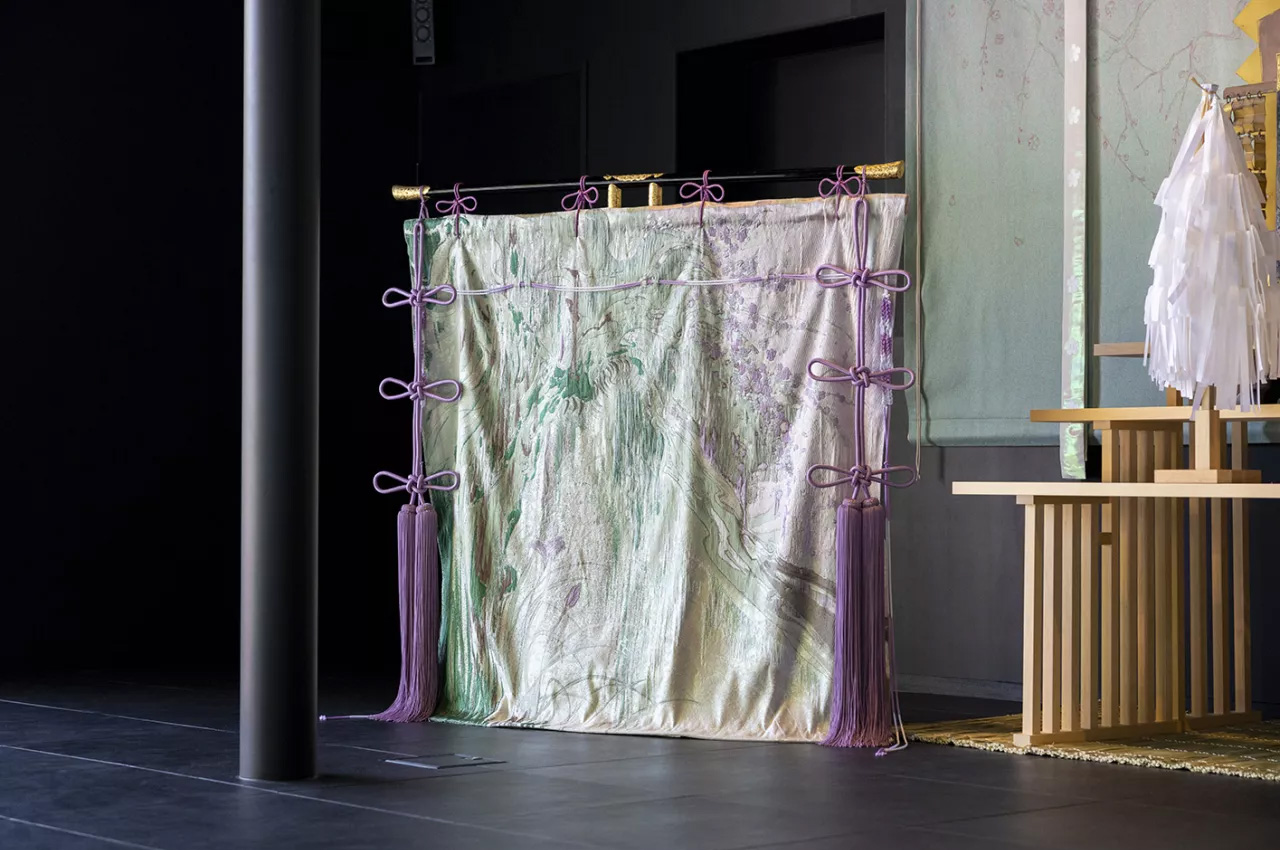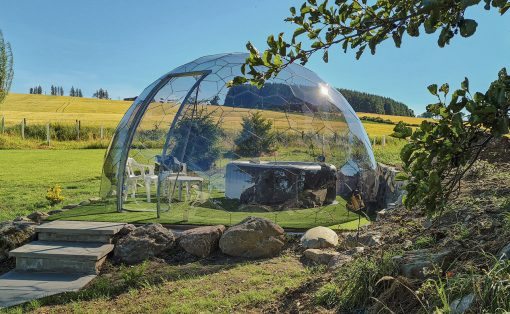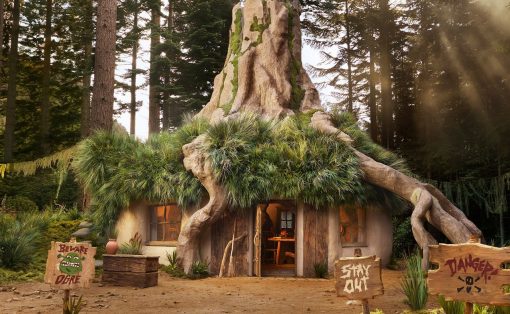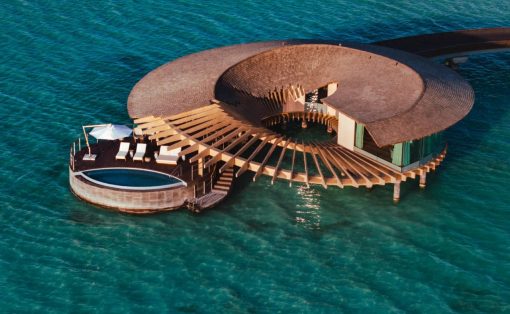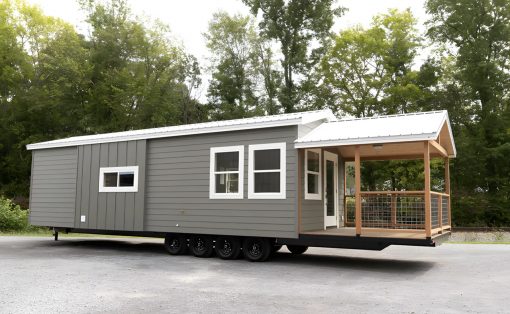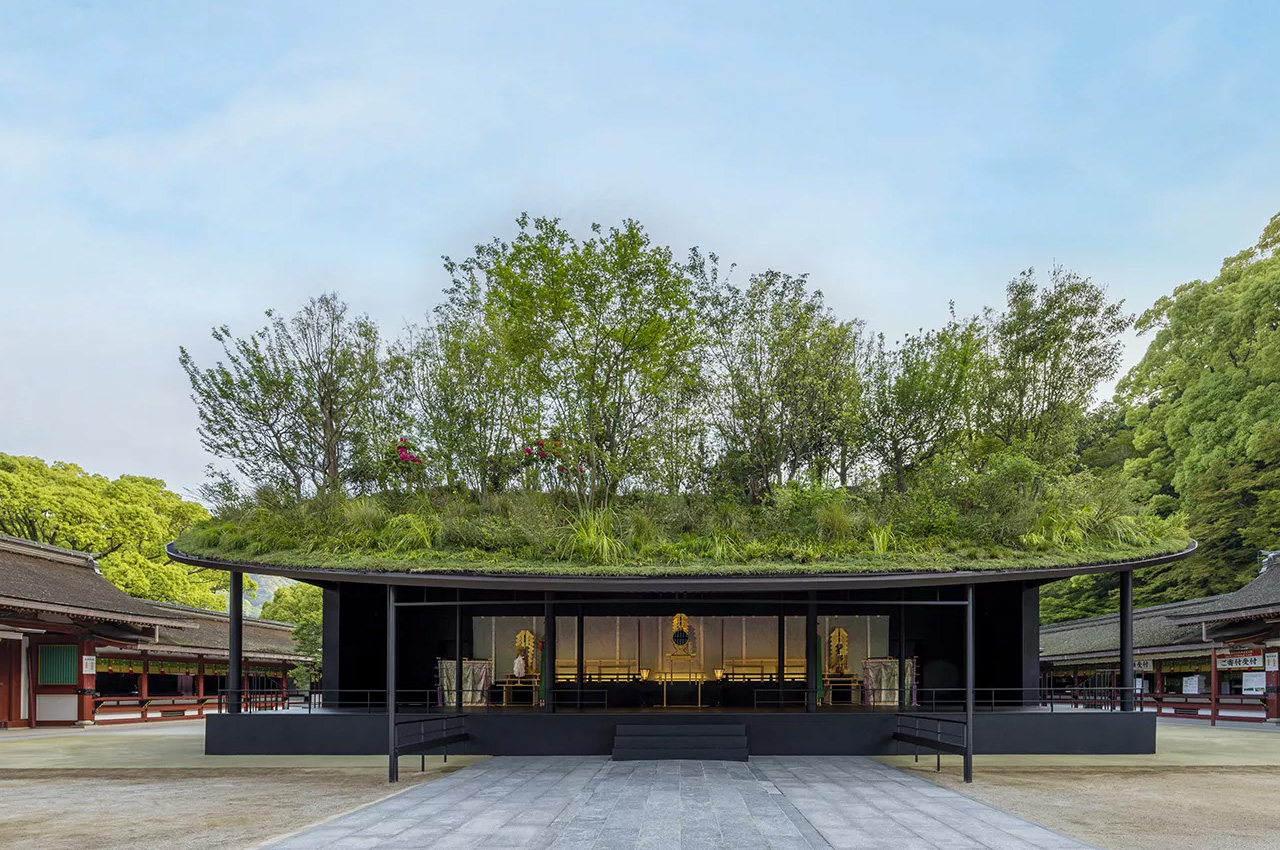
Dazaifu Tenmangu Shrine is a historic shrine in Fukuoka in southern Japan. The shrine is 1100 years old, and recently Sou Fujimoto designed a temporary new hall for it. However, the hall will only be erect for three years, although it does look right out of a Japanese fairy tale. The minimal black hall features a floating forest on an oval roof, a flying plum tree, and sacred textiles that can only be seen by a deity.
Designer: Sou Fujimoto
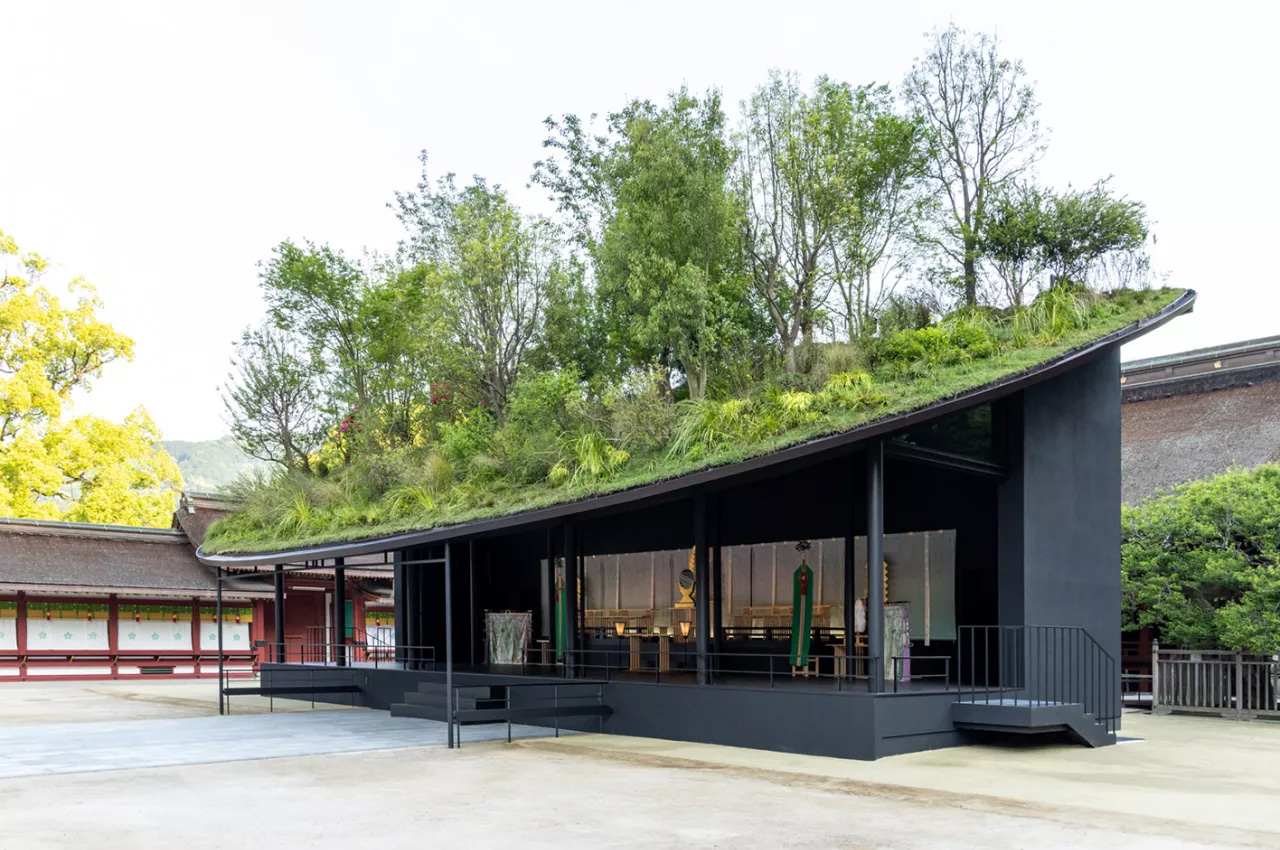
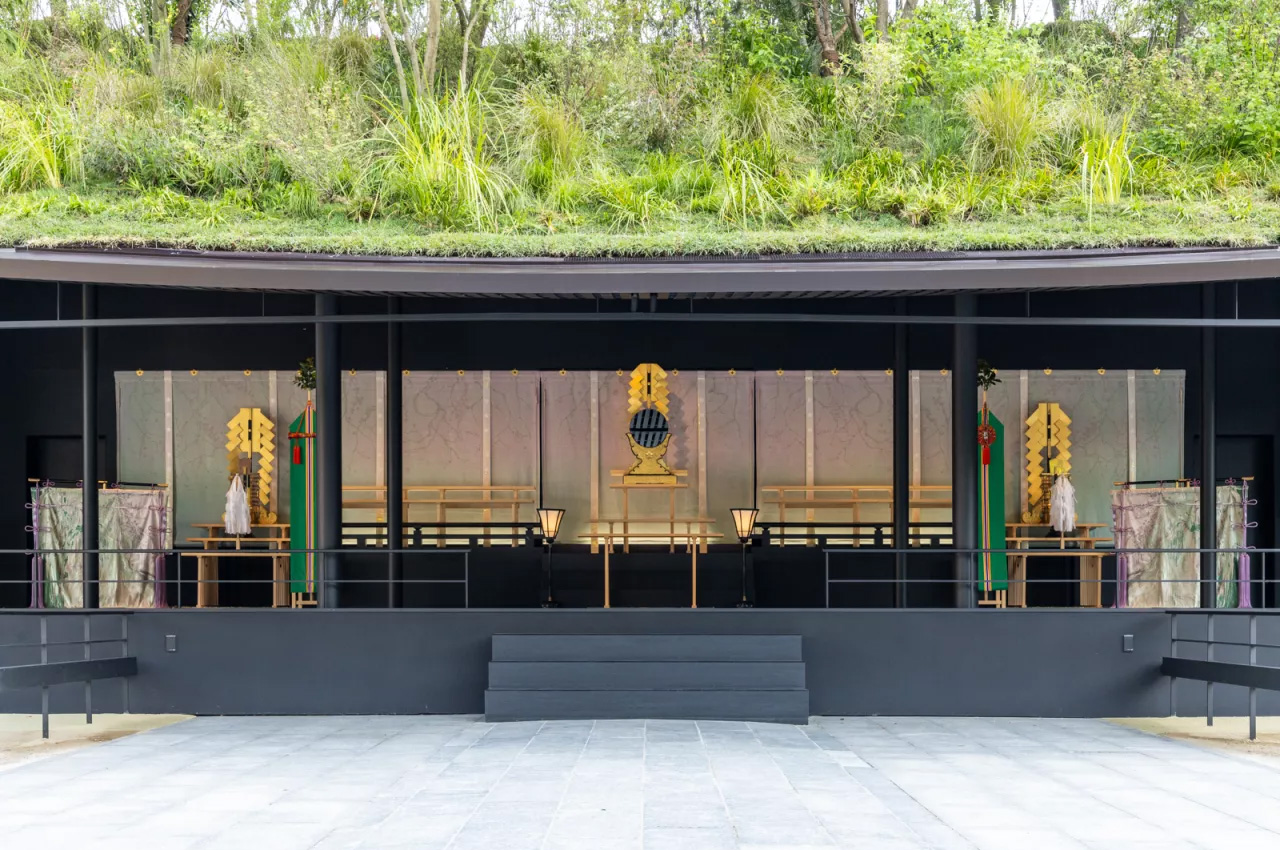
The new hall has a rather modern take on traditional shrine architecture, especially with the elliptical floating forest on the roof. The aforementioned sacred textiles have been designed by the Japanese fashion brand Mame Kurogouchi, and crafted by generations-old Kyoto artisans. They are placed center stage, and the inner sides cant be viewed by human eyes, only by the shrine’s deity.
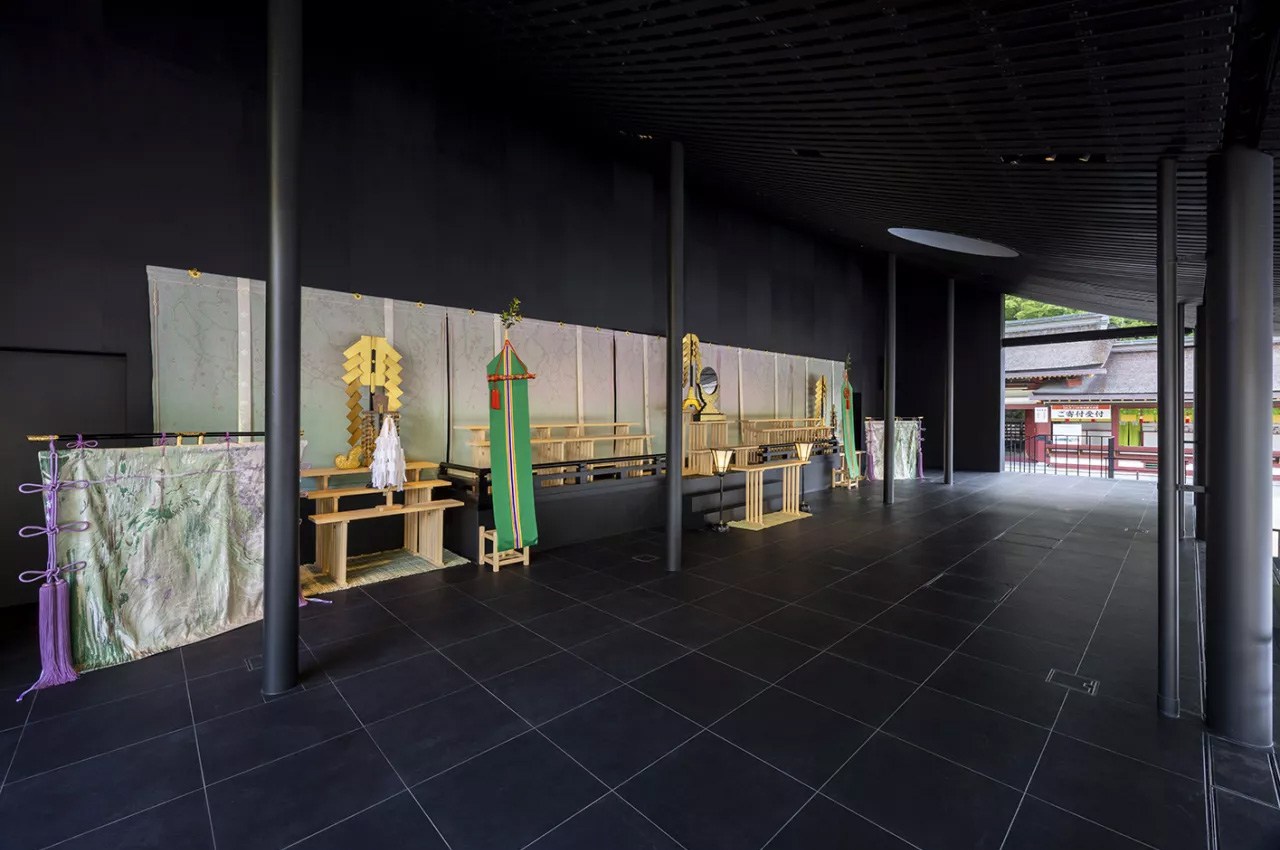
“With this project, we were faced with the important question of how modern architecture can respond to a history of 1,100 years,” said Fujimoto. “We thought about the rich nature that surrounds Dazaifu Tenmangu and the traditions of the shrine – and approached the design with a conscious desire to pass these onto the future. We started this over two years ago. It was a challenge creating a temporary building that is both traditional and modern, while also continuing into the future. It’s very simple but it carries a long, important history.” he continued.
The clean matte black steel hall opens up on all three sides. Bits of traditional shrine architecture has been incorporated within the structure, with a contemporary touch – such as the gentle curvature of its louvered black wood ceiling, inspired by the shrine’s taruki rafters, which create “spatial solemnity” according to Fujimoto. The roof features a circular skylight that allows natural light to stream into the hall, hitting the floor in front of the visitors, as they pray.
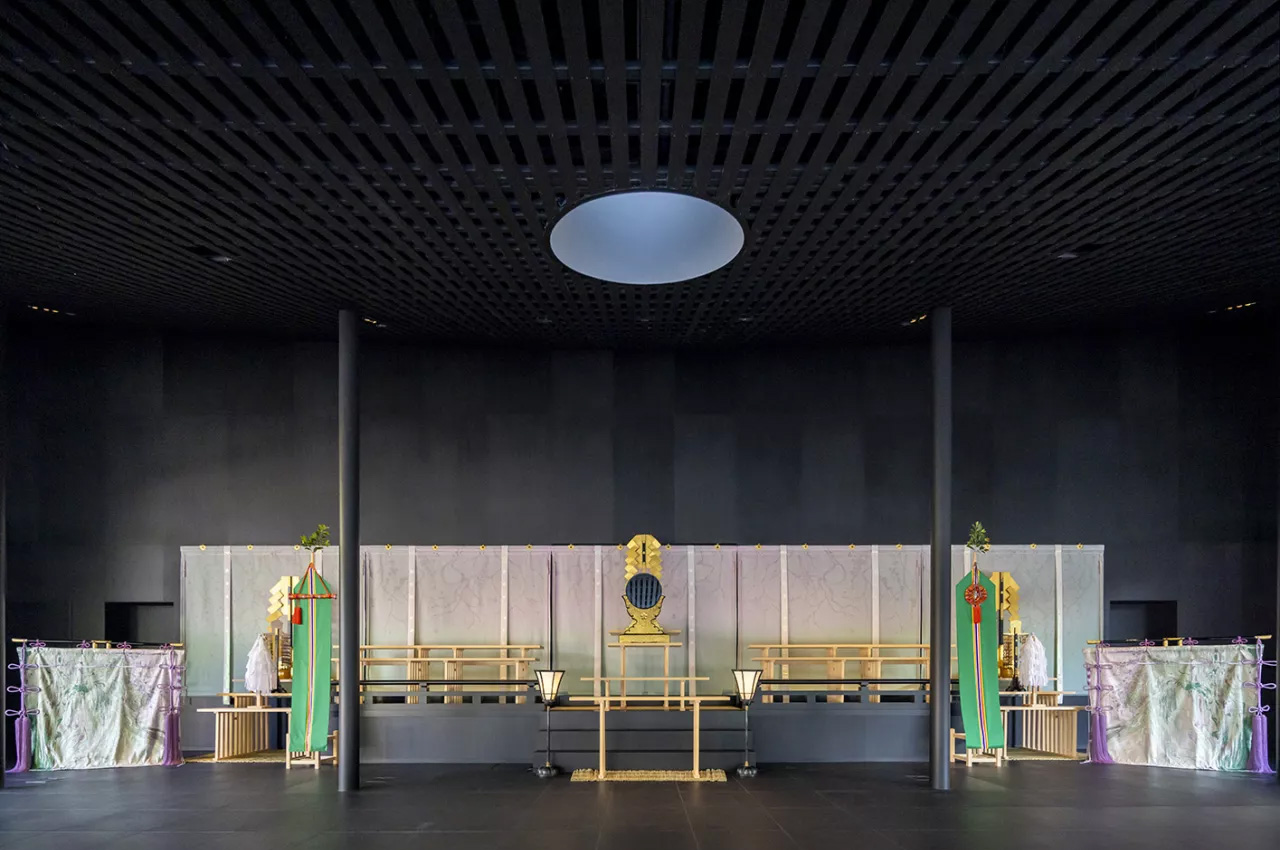
Explaining the floating forest, Fujimoto adds: “Its concept derives from the legend of the flying plum tree. Plum trees and other plants seem to fly here and dance, creating the roof of the deity’s dwelling. They will change color as the climate and seasons shift.” The floating forest adds a stunning green element to the hall, functioning not only as an elaborate green roof but also as a wonderful mythical component.
